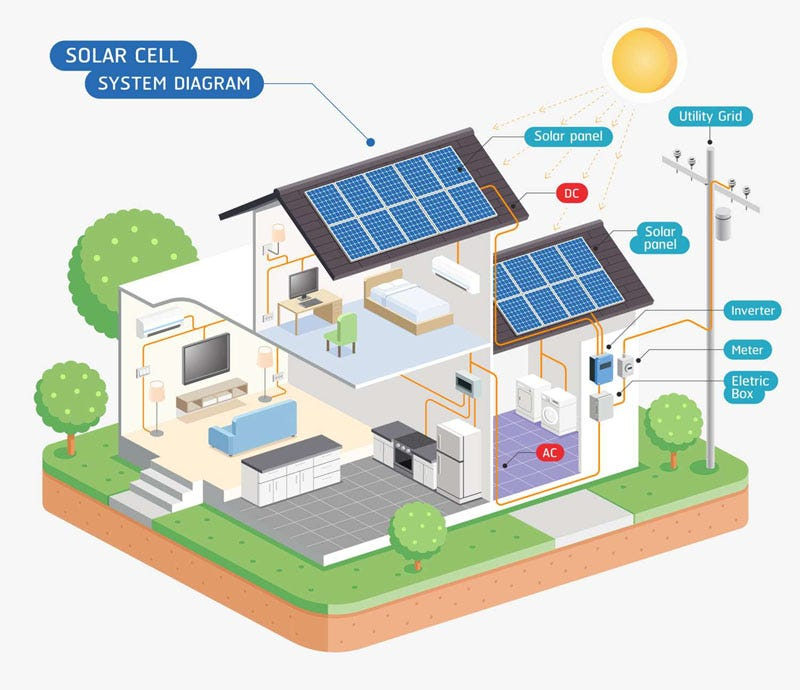Renewable energy is gaining popularity around the world, and one of the most accessible and widely adopted sources is solar power. Harnessing the sun’s energy through solar panels is not only environmentally-friendly but also cost-effective in the long run. In this article, we will explore the benefits of using solar power at home and how it can significantly contribute to reducing our carbon footprint.
The Advantages of Solar Power
1. Clean and Renewable Energy: Solar power is a clean and renewable source of energy that does not produce harmful emissions or pollutants that contribute to climate change. By harnessing the sun’s energy, we can reduce our dependence on fossil fuels and promote a more sustainable future.
2. Cost Savings: While the initial expense of installing solar panels can be significant, homeowners can save a substantial amount of money on their energy bills in the long run. Solar power systems have a lifespan of around 25 to 30 years and, once installed, require minimal maintenance costs.
3. Energy Independence: By installing solar panels at home, homeowners can become more self-reliant in terms of their energy consumption. They can generate their own electricity and reduce dependence on external energy providers, thus increasing energy independence.
4. Tax Incentives and Rebates: Many governments and local authorities offer tax incentives and rebates for homeowners who install solar power systems. This makes the initial investment more affordable and accelerates the return on investment.
Installing Solar Power at Home
1. Solar Panel Placement: For optimal energy generation, solar panels should be placed in areas with maximum sun exposure throughout the day. Ideally, they should be positioned facing south and tilted at an angle that aligns with the latitude of the location.
2. Solar Inverter: A solar inverter is an essential component of the solar power system. It converts the direct current (DC) produced by the solar panels into alternating current (AC) that powers electrical appliances in your home. Ensure you select an inverter that suits your power requirements.
3. Battery Storage: To store excess energy produced by the solar panels, homeowners can consider incorporating battery storage systems. These batteries can be charged during the day and used during the night or during periods of low sunlight.
4. Monitoring and Maintenance: Regular monitoring and maintenance of the solar power system are crucial to ensure its optimal performance. This includes cleaning the panels, checking for any damage, and ensuring all the connections are intact. It is advisable to have a professional inspect your solar power system annually.
The Future of Solar Power
The future of solar power looks promising as advancements in technology continue to make solar panels more efficient and affordable. With the increasing demand for renewable energy, the solar industry is experiencing significant growth. Moreover, governments and organizations worldwide are investing in solar energy research and development to further enhance its efficiency and accessibility.
The integration of solar power into smart grids and the development of solar-powered batteries are some of the exciting innovations on the horizon. These advancements will enable users to store and distribute surplus solar energy, making solar power an even more reliable source of renewable energy.
Conclusion
In conclusion, solar power is a sustainable and eco-friendly solution for generating electricity at home. Its numerous advantages, including cost savings, energy independence, and positive environmental impact, make it an attractive choice for homeowners. By embracing solar power, individuals can actively contribute to reducing their carbon footprint and help build a greener future.


